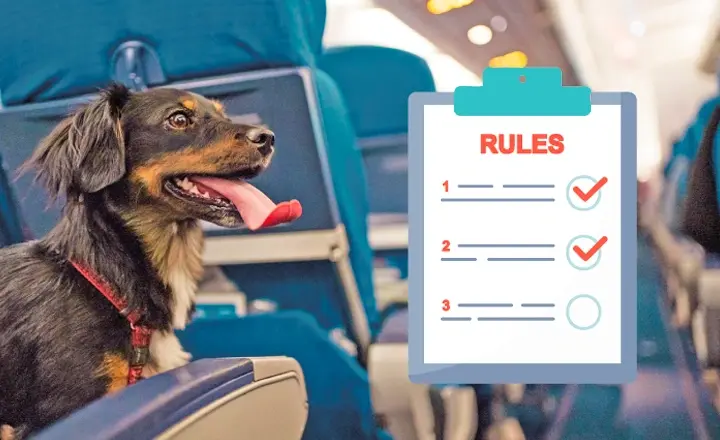Did you know Dubai’s pet population has grown by over 40% in the last five years, with expats bringing everything from French Bulldogs to Fennec Foxes to call this desert paradise home? Navigating Dubai’s pet import rules might seem daunting at first glance, but we’ve broken down every requirement to make your pet’s transition as smooth as possible. Whether you’re relocating with your Persian cat or just visiting with your service dog, here’s everything you need to know.
Understanding Dubai’s Pet Import Framework
Dubai operates under strict pet import regulations designed to protect both animals and residents. The Ministry of Climate Change and Environment (MOCCAE) oversees all pet imports, while the Dubai Municipality handles local registration. Interestingly, Dubai categorizes pets differently than many Western countries – some breeds common elsewhere face restrictions here. The rules also vary depending on whether you’re coming from another GCC country, a “Category 1” nation like the US or UK, or higher-risk regions.
Essential Documentation for Smooth Entry
Your pet’s paperwork makes all the difference. Start with an ISO-compliant microchip implanted before vaccination. The rabies vaccine must be administered at least 21 days before travel but not more than one year prior. Dubai requires a veterinary health certificate issued within 10 days of travel, endorsed by your home country’s agriculture department. For dogs, additional vaccinations against distemper, parvovirus, and leptospirosis are mandatory. Keep color copies of all documents in your carry-on – we’ve heard too many stories of pets delayed because paperwork went missing with checked luggage.
Breed Restrictions That Might Surprise You
While Dubai welcomes most pets, certain breeds face outright bans or special requirements. The prohibited list includes Pit Bull Terriers, Japanese Tosas, and Wolf hybrids. Snub-nosed breeds like Pugs and Bulldogs require special airline-approved crates due to breathing risks. Exotic pets need separate permits – that includes ferrets, parrots larger than cockatiels, and all reptiles. Always check the latest MOCCAE bulletin, as restrictions can change with little notice.
The Step-by-Step Import Process
Begin preparations at least three months before your move. First, ensure your pet meets all vaccination requirements. Next, apply for an import permit through MOCCAE’s online portal – this typically processes within five working days. Book flights on pet-friendly airlines like Emirates or Etihad, who have dedicated animal facilities in Dubai. Upon arrival, head directly to the Animal Quarantine Section at Dubai International Airport’s Terminal 2. The average clearance time is four hours if all documents are perfect.
Quarantine Rules You Should Know
Contrary to popular belief, Dubai doesn’t always mandate quarantine for pets. Animals coming from Category 1 countries with perfect paperwork usually clear immediately. Others might face 14-30 days at the municipal quarantine facility in Jebel Ali. The facility is air-conditioned and staffed with veterinarians, but we recommend visiting hours to check on your pet. Service animals enjoy expedited processing but still require all health certifications.
Climate Considerations for Pet Comfort
Dubai’s extreme heat demands special precautions. Many airlines restrict pet travel between May and September due to tarmac temperatures. If you must fly during summer, book early morning or late evening flights. Acclimate your pet gradually to the desert climate – that thick Husky coat might need professional grooming. Indoor pets should have cool mats and constant access to water. Watch for signs of heatstroke, especially in brachycephalic breeds.

Local Registration and Ongoing Requirements
Once cleared through customs, register your pet with Dubai Municipality within 30 days. The process involves a quick health check at approved clinics like the Dubai Pet Hospital. All dogs require annual licenses, while cats can be registered permanently. Keep vaccination records current – rabies boosters are due every year. Dubai also mandates that dogs be leashed in public and bans walking them during the hottest daytime hours in summer.
Cultural Sensitivity Around Pets
While Dubai is pet-friendlier than many Middle Eastern cities, Islamic customs influence local attitudes. Dogs aren’t considered unclean, but many Muslims avoid direct contact. Keep your dog from approaching locals unless invited. Cat culture differs – community cats are often fed but rarely adopted. During Ramadan, avoid walking dogs near sunset when Muslims are breaking their fast. Pet stores remain open, but some grooming services reduce hours.
Emergency Services and Vet Care Standards
Dubai boasts world-class veterinary facilities, including 24-hour emergency clinics like the Modern Veterinary Hospital. Pet insurance is available but excludes pre-existing conditions. Many vets trained in Europe or North America, and prescription medications are readily available. For specialized care, the Dubai Falcon Hospital occasionally treats other exotic pets. Always carry your pet’s medical records – some clinics require proof of vaccination before treatment.
Traveling Between Emirates with Pets
Your Dubai pet license works across the UAE, but rules vary slightly by emirate. Abu Dhabi requires separate registration for long stays. Sharjah bans certain dog breeds entirely. When driving between emirates, keep pets secured – uncontained animals cause accidents annually. Hotel pet policies also differ, with Abu Dhabi generally being more restrictive than Dubai.
The Realities of Pet Ownership in Dubai
Beyond paperwork, consider Dubai’s pet lifestyle. Most expats live in apartments with size restrictions. Many compounds charge pet deposits or monthly fees. Dog walking services abound but can be pricey. The good news? Pet cafes like The Lime Tree Cafe welcome furry guests, and Kite Beach has a dedicated dog beach from October to April.
Leaving Dubai with Your Pet
Export procedures are simpler than imports but require planning. Most countries need a health certificate issued within 10 days of travel. Some destinations like Australia require new blood tests. The Dubai Municipality must endorse all export paperwork. Book cargo space early during peak relocation seasons in summer. Consider pet relocation services for complex moves – their expertise often justifies the cost.
This comprehensive guide was prepared by the www.few.ae team, Dubai’s trusted resource for expat living. We’ve helped hundreds of pets transition smoothly to desert life and stay happy under the Arabian sun.
